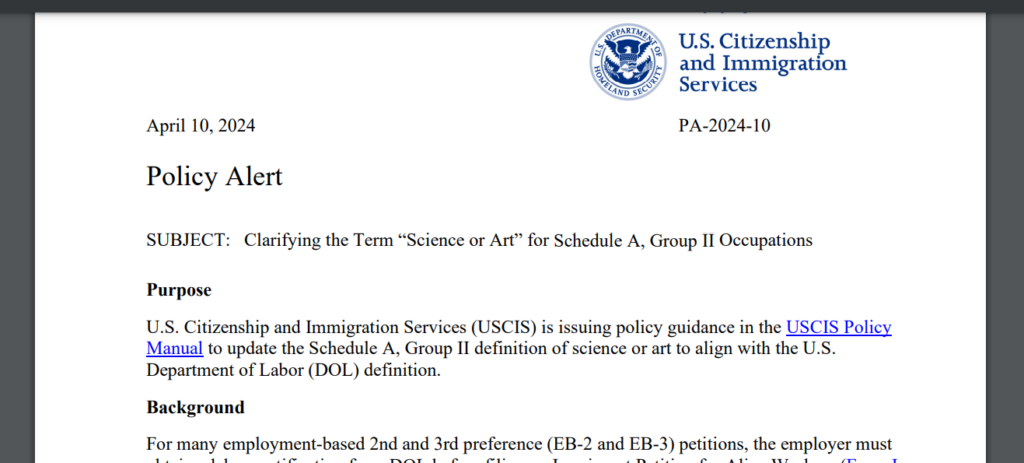Outline
Accelerated Green Card Sponsorship: USCIS Schedule A Update for Talented ‘Sciences or Arts’ Professionals
April 17, 2024
Regarding the current administration’s efforts to keep STEM talent, on April 10, 2024, the U.S. Citizenship and Immigration Services revealed an updated definition for “Schedule A, Group II” occupations. This clarification broadens the scope of the Schedule A, Group II classification, potentially enhancing its usefulness for employers looking to support their top-performing employees in obtaining permanent residency.

Key Insights:
- USCIS has issued a recent announcement indicating a revision to the definition of “Schedule A, Group II” occupations.
- USCIS has specified that occupations falling under Schedule A, Group II, referred to as “Sciences or Arts” occupations, encompass roles across various domains of knowledge and expertise for which colleges and universities typically provide degree programs.
- This clarification brings USCIS’s policy in line with DOL regulations.
The Clarifying the Term “Science or Art” in response to the current administration’s efforts to preserve STEM talent. These roles, identified by the DOL as facing a shortage of skilled U.S. workers, are exempt from the labor market test in permanent residency sponsorship petitions.
USCIS has formally adopted the Department of Labor’s (DOL) definition of “sciences or arts” within the revised Schedule A, Group II designation, which covers any field for which U.S. colleges and universities regularly offer specialized degree courses.
This change could expand the eligibility of the Schedule A, Group II designation to encompass employees in fields where colleges and universities commonly offer Bachelor’s or higher degree programs. These individuals are required to demonstrate exceptional ability, have been employed in a position requiring exceptional ability for a minimum of one year, and are anticipated to continue in such roles.
The new classification removes the requirement for a labor market test in EB-2 or EB-3 category sponsorship for permanent residency, leading to a faster and more efficient application process. This recent advancement provides further opportunities for skilled employees seeking permanent residency in the United States.
TAGS:






